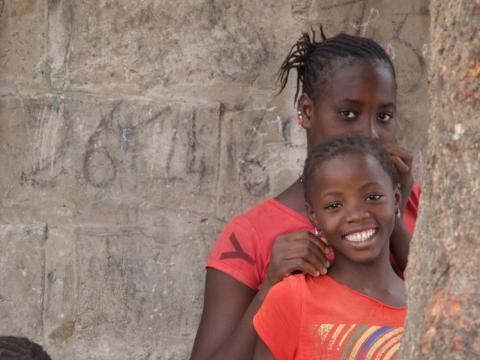Teenage pregnancy : interfaith cooperation to reduce it

By Senegalese traditional standards, it is considered failed parenting for a daughter to become pregnant before marriage. The resulting shame and difficulty are not easily forgotten in the community. The education of a pregnant girl-child quickly comes to a painful end, rendering the future prospects of such a child very dim. For the 14 villages of the Fimela and Tattaguine District, teenage pregnancy had been on the rise in recent years and attempts to reduce it had failed. At the high school at Loul Sessene, 14 pregnancies were reported in 2015, causing panic in the nearby communities. Every effort, including use of traditional controls to address the crisis had failed, increasing the anxiety of parents. Jackline Siga Diouf, President of “Badien nu Gor communities health helpers” of Ngohé Ndoffongor area remarked that, “Whenever a girl became pregnant, a great crisis settled on the parents.”
However in 2016, a remarkable reduction in teenage pregnancies has taken place. While last year 14 pregnancies were reported among students in Loul Sessene high school, over the same period this year only two teenage pregnancies were recorded. This trend can be traced to the intervention of the Christian Muslim interfaith cooperation, an intervention facilitated by the Enhancing Christian Witness in Senegal (ECWS) project of World Vision Senegal.
One of the key objectives of the ECWS project was to empower faith leaders as community gatekeepers to become involved in societal challenges by amplifying positive messages of change through their constant interactions with community members. Thirty religious leaders in the Tattaguine Fimela area, including Christian pastors, Muslim imams and Catholic priests were mobilized into committees based on proximity to work together for the good of the child. Areas of intervention for the interfaith cooperation involved all areas of child wellbeing, in particular birth registration and promoting cultural habits that are favourable to the welfare of children while discouraging those that inhibit their welfare.
The issue of teenage pregnancy was addressed with messages specifically formulated for boys and girls, parents and teachers. According to an imam involved in the interfaith intervention, “This program is unique. It permits religious leaders from various backgrounds to work together and relations between us have improved. It also strengthens us to think together. For example, we identified some causes of teenage pregnancy. These are: regular Bals (celebrations) organized by teachers and the neglect of some parents in monitoring the education of their children. This forum for group thinking guides us towards more appropriate actions. When we held the first meeting, practically all 30 religious leaders were present to work for the cause of the child in Tattaguine Fimela.”
Author: Jean de Dieu N'Gouala, Faith and Development Projects Coordinator - Photos Delphine Rouiller & Jean de Dieu N'Gouala
